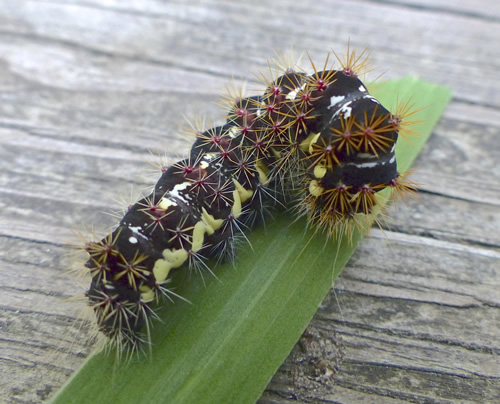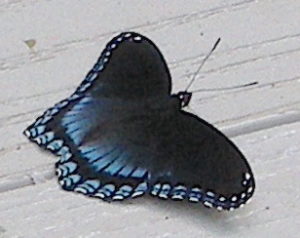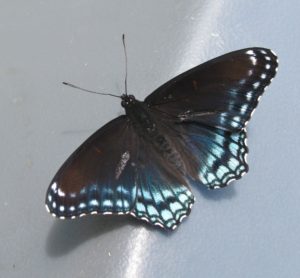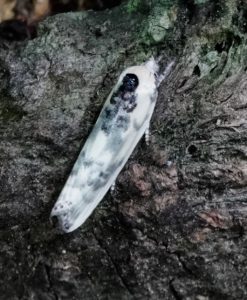Sightings – Butterflies & Moths
Observer: Marshall Katler
Observation Date: 7/25/23
Observation Time: 12:30 p.m.
Observation Location: Mansfield St.
Common Name: Red-spotted Purple butterfly
Scientific Name: Limenitis arthemis
Comments: This butterfly was on this ramp to a shed for several hours, just opening and closing its wings, occasionally taking a short flight.
The red-spotted purple butterfly is the same species as the white admiral butterfly. It is a North American species in the cosmopolitan genus Limenitis. It has been studied for its evolution of mimicry, and for the several stable hybrid wing patterns within this nominal species; it is one of the most dramatic examples of hybridization between non-mimetic and mimetic populations.
L. arthemis can be split into two major groups, mainly based on one physical characteristic: the presence or absence of a white band along the wings. Individuals of the northern group, called white admirals, have a conspicuous white band that traverse both the dorsal and ventral surfaces of the wing, while those of the southern group, called red-spotted purples, lack that trait as they have evolved to mimic the poisonous pipevine swallowtail (Battus philenor). Due to overlap in distribution among the two major groups, subspecies are numerous as hybridization occurs frequently.
More Information: Wikipedia
Observer: Paul Lauenstein
Observation Date: 5/24/12
Observation Time: 8:20 a.m.
Observation Location: Gavins Pond area
Common Name: Red-spotted Purple butterfly
Scientific Name: Limenitis arthemis astyanax
Comments:
The red-spotted purple butterfly is the same species as the white admiral butterfly. It is a North American species in the cosmopolitan genus Limenitis. It has been studied for its evolution of mimicry, and for the several stable hybrid wing patterns within this nominal species; it is one of the most dramatic examples of hybridization between non-mimetic and mimetic populations.
L. arthemis can be split into two major groups, mainly based on one physical characteristic: the presence or absence of a white band along the wings. Individuals of the northern group, called white admirals, have a conspicuous white band that traverse both the dorsal and ventral surfaces of the wing, while those of the southern group, called red-spotted purples, lack that trait as they have evolved to mimic the poisonous pipevine swallowtail (Battus philenor). Due to overlap in distribution among the two major groups, subspecies are numerous as hybridization occurs frequently.
More Information: Wikipedia
Observer: Paul Lauenstein
Observation Date: 6/5/11
Observation Time: 4:50 p.m.
Observation Location: Kendall estate, Moose Hill Street
Common Name: Red-spotted Purple butterfly
Scientific Name: Limenitis arthemis astyanax
Comments:
The red-spotted purple butterfly is the same species as the white admiral butterfly. It is a North American species in the cosmopolitan genus Limenitis. It has been studied for its evolution of mimicry, and for the several stable hybrid wing patterns within this nominal species; it is one of the most dramatic examples of hybridization between non-mimetic and mimetic populations.
L. arthemis can be split into two major groups, mainly based on one physical characteristic: the presence or absence of a white band along the wings. Individuals of the northern group, called white admirals, have a conspicuous white band that traverse both the dorsal and ventral surfaces of the wing, while those of the southern group, called red-spotted purples, lack that trait as they have evolved to mimic the poisonous pipevine swallowtail (Battus philenor). Due to overlap in distribution among the two major groups, subspecies are numerous as hybridization occurs frequently.
More Information: Wikipedia
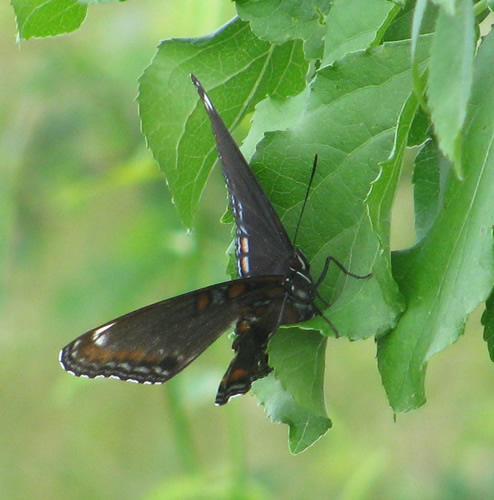
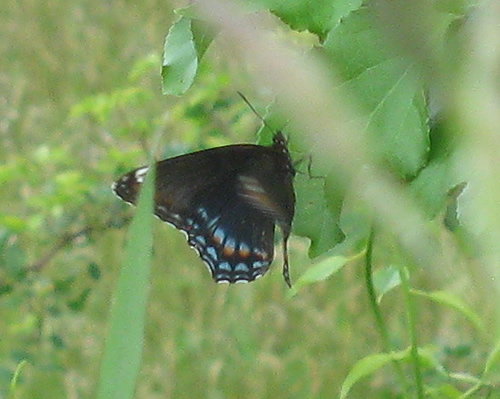
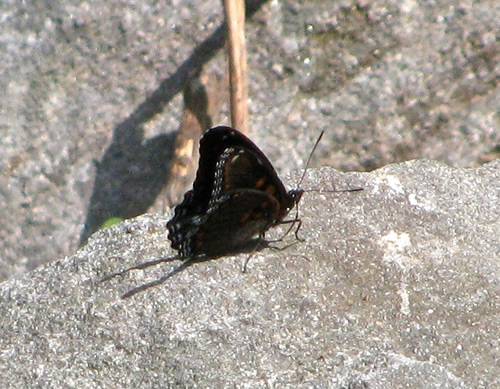
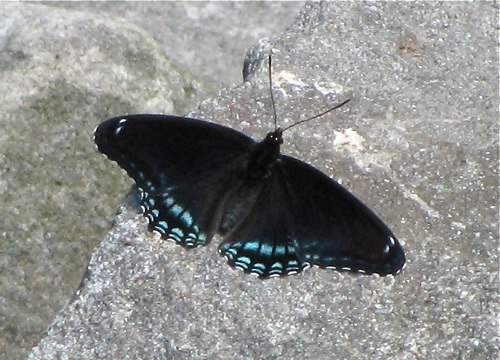
Observer: Faith Berkland
Observation Date: 6/6/15
Observation Time: 1:45 p.m.
Observation Location: 302 Mansfield Street
Common Name: Red-Spotted Purple butterfly
Scientific Name: limenitis arthemis
More Information: Butterflies and Moths of North America
Observer: Paul Lauenstein
Observation Date: 6/4/11
Observation Time: 3:15 p.m.
Observation Location: Conservation land near Billings Street
Common Name: Roland’s Sallow Moth (caterpillar)
Scientific Name: Psaphida rolandi
More Information: Bug Guide
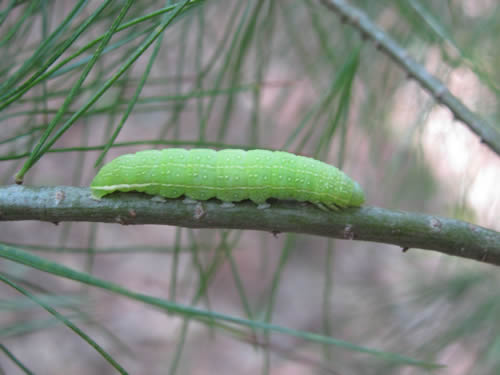
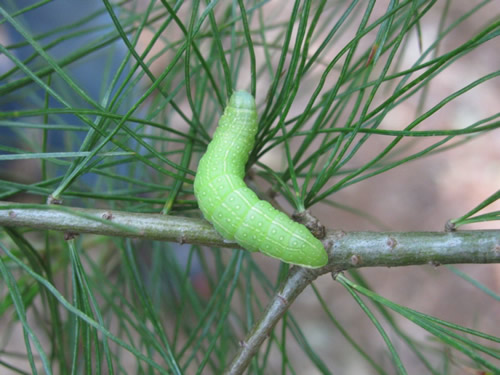
Observer: Paul Lauenstein
Observation Date: 7/9/11
Observation Time: 4:50 p.m.
Observation Location: field near Gavins Pond
Common Name: Saw-wing Moth
Scientific Name: Euchlaena serrata
Comments: This specimen alit on my note pad and posed for the photo. Then it flew off. Yet another example of how you don’t find nature. Nature finds you! So keep that camera or smart phone handy!
More Information: BugGuide
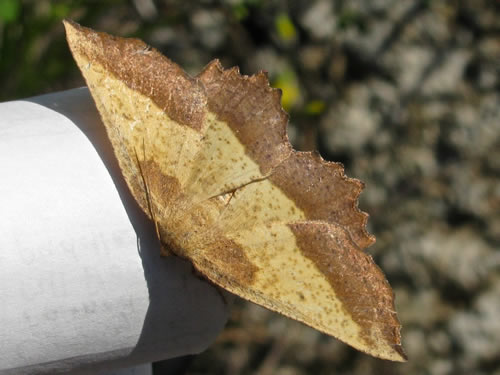
Observer: Paul Lauenstein
Observation Date: 6/2/20
Observation Time: 1:30 p.m.
Observation Location: Near tennis courts at outbound train station
Common Name: Schlaeger’s fruitworm moth
Scientific Name: Antaeotricha schlaegeri
Comments: The Schlaeger’s fruitworm moth is found in north-eastern North America, south to North Carolina and west to Kansas and Texas.
Adults resemble a bird-dropping. The wingspan is 21–30 mm.
The larvae feed on white oak and related species.
More Information: Wikipedia
Observer: Paul Lauenstein
Observation Date: 7/13/13
Observation Time: 10:55 a.m.
Observation Location: Gavins Pond area
Common Name: Silver-Spotted Skipper butterfly
Scientific Name: Epargyreus clarus
Comments: Adults perch upside down under leaves at night and on hot or cloudy days.
More Information: Butterflies and Moths of North America
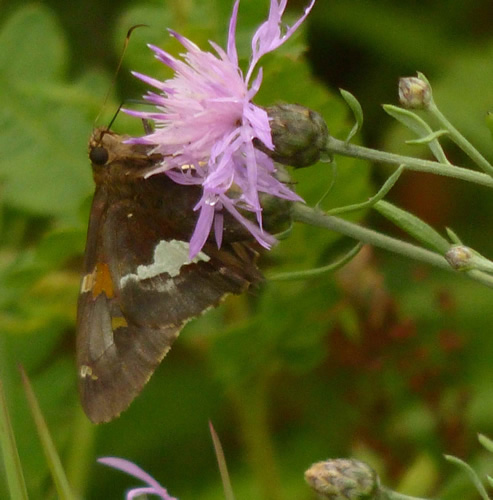
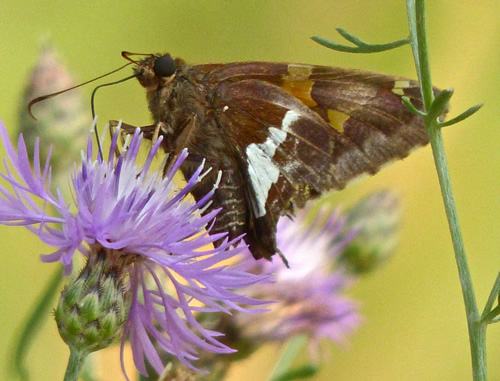
Observer: Paul Lauenstein
Observation Date: 6/25/11
Observation Time: 3:00 p.m.
Observation Location: Gavins Pond near soccer fields
Common Name: Small Cabbage White butterfly
Scientific Name: Pieris rapae
Comments: The top photo shows a copulating pair. The male has a single black wing spot. The female has two black wing spots, and slightly yellower wings.
More Information: Wikipedia
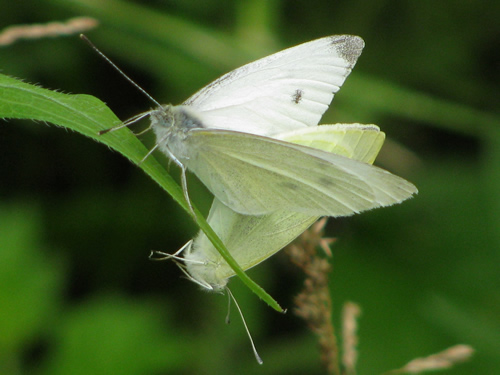
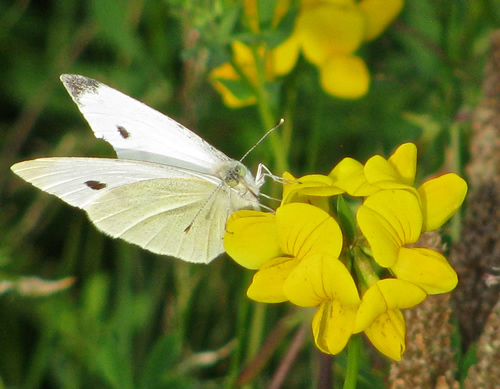
Observer: Paul Lauenstein
Observation Date: 9/7/13
Observation Time: 3:20 p.m.
Observation Location: Gavins Pond Dam
Common Name: Smeared Dagger Moth caterpillar
Scientific Name: Acronicta oblinita
Comments: For pictures of the adult moth, see: http://www.discoverlife.org/mp/20q?search=Acronicta+oblinita&guide=Moth&cl=US/GA/Clarke
More Information: Butterflies and Moths of North America
